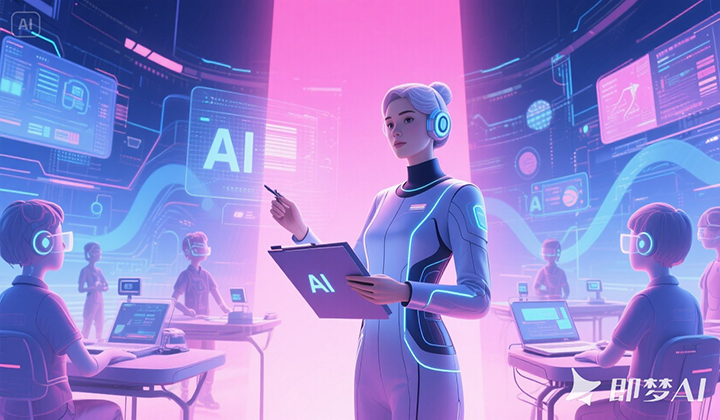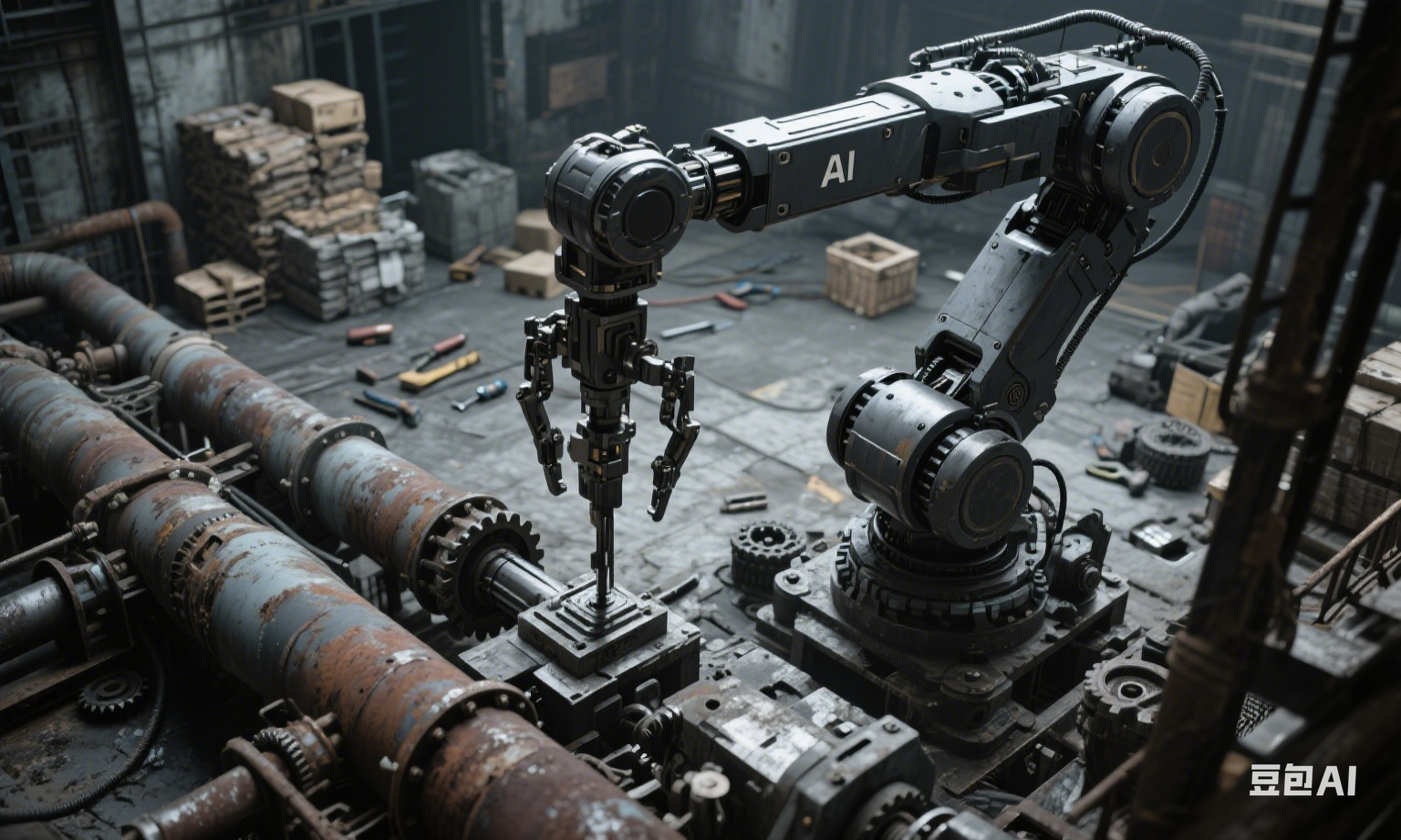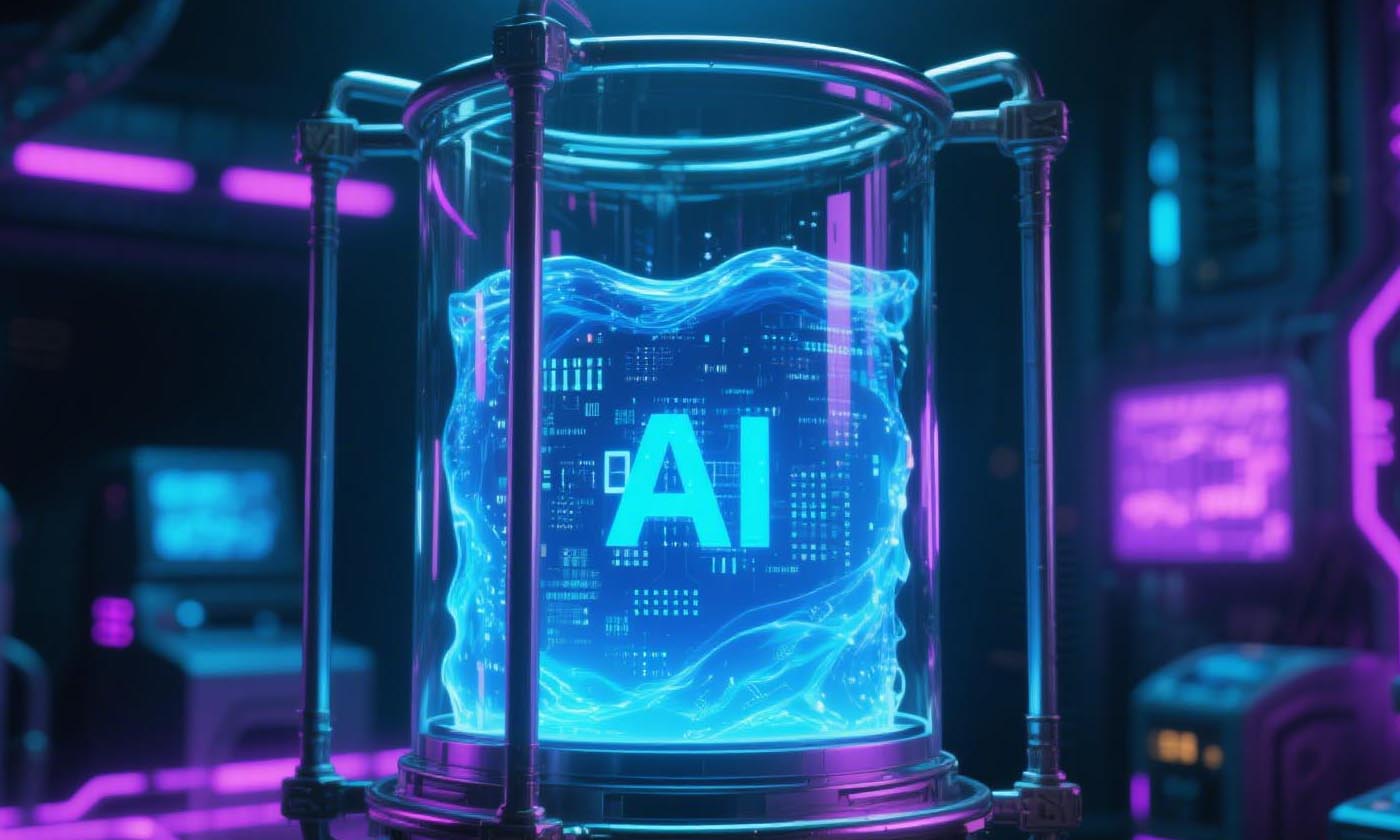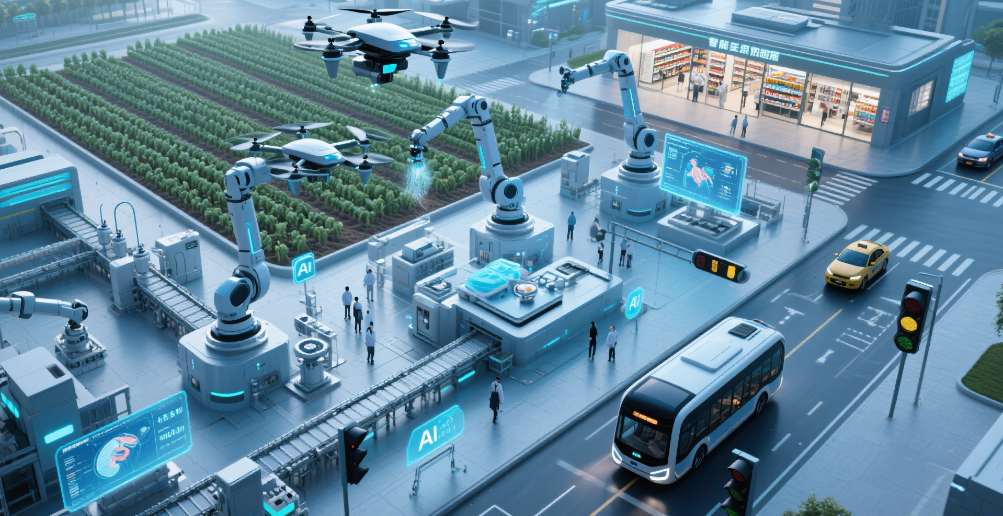AI and Go: A Revolution in Strategy and Beyond
观棋 2025-06-17
The integration of artificial intelligence (AI) into the ancient game of Go has not only transformed the landscape of competitive play but also redefined our understanding of strategy, learning, and creativity. With its vast number of possible positions—estimated at 10^170, far exceeding the number of atoms in the observable universe—Go has long been considered a formidable challenge for AI systems. However, the advent of deep learning and reinforcement learning algorithms has enabled AI to achieve unprecedented success in the game, sparking a paradigm shift in both the world of Go and the broader field of AI research. This article explores the journey of AI in Go, its impact on the game, and the implications of this technological breakthrough.
AI and Go: A Revolution in Strategy and Beyond
The integration of artificial intelligence (AI) into the ancient game of Go has not only transformed the landscape of competitive play but also redefined our understanding of strategy, learning, and creativity. With its vast number of possible positions—estimated at 10^170, far exceeding the number of atoms in the observable universe—Go has long been considered a formidable challenge for AI systems. However, the advent of deep learning and reinforcement learning algorithms has enabled AI to achieve unprecedented success in the game, sparking a paradigm shift in both the world of Go and the broader field of AI research. This article explores the journey of AI in Go, its impact on the game, and the implications of this technological breakthrough.
1. The Early Struggles and the Rise of DeepMind
For decades, developing an AI capable of mastering Go remained an elusive goal. Traditional search - based algorithms, which had proven effective in games like chess, struggled to handle Go’s complexity. Chess has a relatively smaller search space and more straightforward evaluation functions, whereas Go’s vastness made exhaustive search methods impractical.
The turning point came with the emergence of DeepMind, a British artificial intelligence company acquired by Google. In 2016, DeepMind’s AlphaGo made headlines by defeating Lee Sedol, one of the world’s top Go players, in a five - game match with a score of 4 - 1. This victory was a milestone, not only for the Go community but for the entire field of AI.
AlphaGo combined deep neural networks with Monte Carlo Tree Search (MCTS). The neural networks, including a policy network that predicted the next move and a value network that estimated the probability of winning from a given position, were trained using a combination of supervised learning on human - played games and reinforcement learning through self - play. This hybrid approach allowed AlphaGo to navigate the complex Go board, making strategic decisions that mimicked and often surpassed human intuition.
2. The Evolution of AI in Go: From AlphaGo to AlphaGo Zero
Following the success of AlphaGo, DeepMind continued to push the boundaries with the development of AlphaGo Zero. Unlike its predecessor, AlphaGo Zero did not rely on human - played games for training. Instead, it started from scratch, using only the rules of Go and reinforcement learning through self - play.
AlphaGo Zero trained by playing millions of games against itself, continuously updating its neural networks based on the outcomes. In just three days of self - play, it achieved a 100 - 0 victory over the original AlphaGo. This achievement demonstrated the power of reinforcement learning and the potential for AI to learn complex strategies independently, without human - provided examples. It also challenged the long - held belief that human expertise was essential for teaching AI high - level strategies.
Subsequently, algorithms like AlphaZero were developed, which could master multiple games, including Go, chess, and shogi, using a similar self - play - based reinforcement learning approach. These advancements showed that the principles underlying AI’s success in Go could be applied more broadly across different strategic games.
3. Impact on the Go Community
The rise of AI in Go has had a profound impact on the Go - playing community. Professional Go players now study AI - generated moves to expand their strategic repertoires. AI has introduced new opening strategies, middle - game tactics, and end - game techniques that were previously unknown or undervalued by human players. For example, AI - recommended openings often feature more expansive and flexible early - game plays, challenging traditional conservative approaches.
Moreover, AI has become an invaluable training tool. Online platforms offer AI opponents at various skill levels, allowing players of all ages and abilities to practice and improve. These AI opponents can provide instant feedback, analyze games in detail, and suggest alternative moves, helping players understand their mistakes and refine their strategies more effectively.
However, the dominance of AI in competitive play has also raised questions about the future of human - only Go tournaments. While many in the community believe that the unique qualities of human play, such as creativity, emotion, and the element of surprise, will always have a place, there is no denying that AI has changed the nature of competition and the way players prepare for matches.
4. Lessons for AI Research and Beyond
The success of AI in Go has significant implications for the broader field of AI research. It has demonstrated the power of deep learning and reinforcement learning in solving complex, real - world problems. The techniques developed for Go, such as self - play and neural network - based evaluation functions, have been applied to other domains, including robotics, healthcare, and finance.
In robotics, for example, reinforcement learning algorithms inspired by AlphaGo Zero are being used to train robots to perform complex tasks, such as walking, grasping objects, and navigating through unfamiliar environments. In healthcare, deep learning models are analyzing medical images and patient data to assist in diagnosis and treatment planning, much like how AI analyzes Go board positions to make strategic decisions.
Furthermore, the AI - Go saga has also influenced our understanding of intelligence. It has shown that intelligence can be manifested in different forms, and that machines can learn complex strategies through autonomous exploration and self - improvement. This challenges traditional views of human - centered intelligence and opens up new avenues for research into artificial general intelligence.
5. Challenges and Ethical Considerations
Despite its achievements, the use of AI in Go also presents challenges and ethical considerations. One concern is the potential for AI - generated moves to homogenize the game. As players increasingly adopt AI - recommended strategies, there is a risk that the diversity of playing styles and creative thinking in Go may decline.
Another issue is related to data privacy and security. AI systems used for Go analysis often rely on large amounts of game data, which may include personal information about players. Ensuring the privacy and security of this data is crucial to protect the rights of players and maintain the integrity of the Go - playing community.
Additionally, as AI becomes more involved in competitive Go, questions arise about fairness in tournaments. For example, ensuring that all players have equal access to AI - based training tools and that there are no loopholes for AI - assisted cheating is a complex challenge that the community must address.
6. The Future of AI and Go
Looking ahead, the relationship between AI and Go is likely to continue evolving. AI will continue to refine its Go - playing strategies, potentially reaching levels of play that are currently . At the same time, researchers may explore new ways to combine human and AI intelligence, such as team - based games where humans and AI collaborate to make decisions.
Moreover, the insights gained from AI’s journey in Go will continue to drive innovation in other fields. The development of more efficient learning algorithms, better neural network architectures, and improved methods for handling complex decision - making problems are all areas that stand to benefit from the ongoing research in AI and Go.
In conclusion, the integration of AI into Go has been a transformative journey, revolutionizing the game, influencing AI research, and challenging our understanding of intelligence. As we move forward, the continued interaction between AI and Go will not only shape the future of this ancient game but also have far - reaching implications for technology, society, and our perception of human - machine collaboration.
The integration of artificial intelligence (AI) into the ancient game of Go has not only transformed the landscape of competitive play but also redefined our understanding of strategy, learning, and creativity. With its vast number of possible positions—estimated at 10^170, far exceeding the number of atoms in the observable universe—Go has long been considered a formidable challenge for AI systems. However, the advent of deep learning and reinforcement learning algorithms has enabled AI to achieve unprecedented success in the game, sparking a paradigm shift in both the world of Go and the broader field of AI research. This article explores the journey of AI in Go, its impact on the game, and the implications of this technological breakthrough.
1. The Early Struggles and the Rise of DeepMind
For decades, developing an AI capable of mastering Go remained an elusive goal. Traditional search - based algorithms, which had proven effective in games like chess, struggled to handle Go’s complexity. Chess has a relatively smaller search space and more straightforward evaluation functions, whereas Go’s vastness made exhaustive search methods impractical.
The turning point came with the emergence of DeepMind, a British artificial intelligence company acquired by Google. In 2016, DeepMind’s AlphaGo made headlines by defeating Lee Sedol, one of the world’s top Go players, in a five - game match with a score of 4 - 1. This victory was a milestone, not only for the Go community but for the entire field of AI.
AlphaGo combined deep neural networks with Monte Carlo Tree Search (MCTS). The neural networks, including a policy network that predicted the next move and a value network that estimated the probability of winning from a given position, were trained using a combination of supervised learning on human - played games and reinforcement learning through self - play. This hybrid approach allowed AlphaGo to navigate the complex Go board, making strategic decisions that mimicked and often surpassed human intuition.
2. The Evolution of AI in Go: From AlphaGo to AlphaGo Zero
Following the success of AlphaGo, DeepMind continued to push the boundaries with the development of AlphaGo Zero. Unlike its predecessor, AlphaGo Zero did not rely on human - played games for training. Instead, it started from scratch, using only the rules of Go and reinforcement learning through self - play.
AlphaGo Zero trained by playing millions of games against itself, continuously updating its neural networks based on the outcomes. In just three days of self - play, it achieved a 100 - 0 victory over the original AlphaGo. This achievement demonstrated the power of reinforcement learning and the potential for AI to learn complex strategies independently, without human - provided examples. It also challenged the long - held belief that human expertise was essential for teaching AI high - level strategies.
Subsequently, algorithms like AlphaZero were developed, which could master multiple games, including Go, chess, and shogi, using a similar self - play - based reinforcement learning approach. These advancements showed that the principles underlying AI’s success in Go could be applied more broadly across different strategic games.
3. Impact on the Go Community
The rise of AI in Go has had a profound impact on the Go - playing community. Professional Go players now study AI - generated moves to expand their strategic repertoires. AI has introduced new opening strategies, middle - game tactics, and end - game techniques that were previously unknown or undervalued by human players. For example, AI - recommended openings often feature more expansive and flexible early - game plays, challenging traditional conservative approaches.
Moreover, AI has become an invaluable training tool. Online platforms offer AI opponents at various skill levels, allowing players of all ages and abilities to practice and improve. These AI opponents can provide instant feedback, analyze games in detail, and suggest alternative moves, helping players understand their mistakes and refine their strategies more effectively.
However, the dominance of AI in competitive play has also raised questions about the future of human - only Go tournaments. While many in the community believe that the unique qualities of human play, such as creativity, emotion, and the element of surprise, will always have a place, there is no denying that AI has changed the nature of competition and the way players prepare for matches.
4. Lessons for AI Research and Beyond
The success of AI in Go has significant implications for the broader field of AI research. It has demonstrated the power of deep learning and reinforcement learning in solving complex, real - world problems. The techniques developed for Go, such as self - play and neural network - based evaluation functions, have been applied to other domains, including robotics, healthcare, and finance.
In robotics, for example, reinforcement learning algorithms inspired by AlphaGo Zero are being used to train robots to perform complex tasks, such as walking, grasping objects, and navigating through unfamiliar environments. In healthcare, deep learning models are analyzing medical images and patient data to assist in diagnosis and treatment planning, much like how AI analyzes Go board positions to make strategic decisions.
Furthermore, the AI - Go saga has also influenced our understanding of intelligence. It has shown that intelligence can be manifested in different forms, and that machines can learn complex strategies through autonomous exploration and self - improvement. This challenges traditional views of human - centered intelligence and opens up new avenues for research into artificial general intelligence.
5. Challenges and Ethical Considerations
Despite its achievements, the use of AI in Go also presents challenges and ethical considerations. One concern is the potential for AI - generated moves to homogenize the game. As players increasingly adopt AI - recommended strategies, there is a risk that the diversity of playing styles and creative thinking in Go may decline.
Another issue is related to data privacy and security. AI systems used for Go analysis often rely on large amounts of game data, which may include personal information about players. Ensuring the privacy and security of this data is crucial to protect the rights of players and maintain the integrity of the Go - playing community.
Additionally, as AI becomes more involved in competitive Go, questions arise about fairness in tournaments. For example, ensuring that all players have equal access to AI - based training tools and that there are no loopholes for AI - assisted cheating is a complex challenge that the community must address.
6. The Future of AI and Go
Looking ahead, the relationship between AI and Go is likely to continue evolving. AI will continue to refine its Go - playing strategies, potentially reaching levels of play that are currently . At the same time, researchers may explore new ways to combine human and AI intelligence, such as team - based games where humans and AI collaborate to make decisions.
Moreover, the insights gained from AI’s journey in Go will continue to drive innovation in other fields. The development of more efficient learning algorithms, better neural network architectures, and improved methods for handling complex decision - making problems are all areas that stand to benefit from the ongoing research in AI and Go.
In conclusion, the integration of AI into Go has been a transformative journey, revolutionizing the game, influencing AI research, and challenging our understanding of intelligence. As we move forward, the continued interaction between AI and Go will not only shape the future of this ancient game but also have far - reaching implications for technology, society, and our perception of human - machine collaboration.












